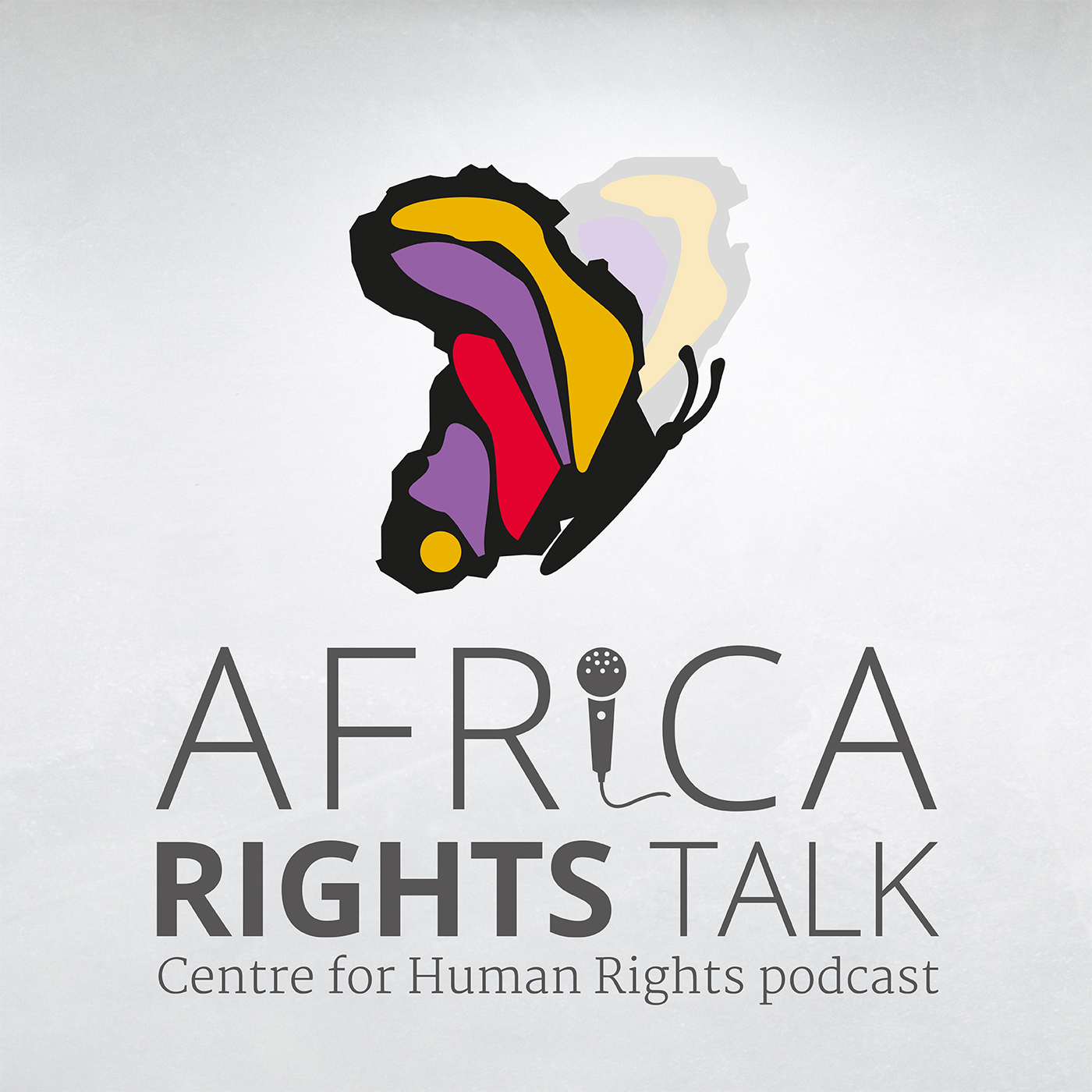Episodes
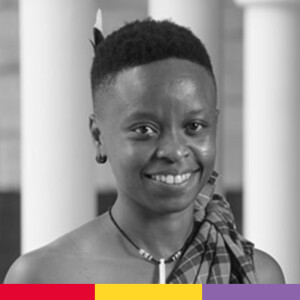
Monday Jun 02, 2025
Monday Jun 02, 2025
In conversation with Arudi Laurah
In this episode, the African Rights Talk Podcast hosts Arudi Laurah, Programme Officer at the Network of African National Human Rights Institutions (NANHRI), about her work in advancing the rights of SOGIE persons and human rights defenders across Africa. Arudi shares insights from the recent NHRI training held in Pretoria in April 2025, which focused on building the capacity of national human rights institutions to implement African Commission Resolutions 275 and 552. These resolutions address the protection of LGBTQ+ individuals and intersex persons from violence and discrimination. Drawing on her experience as an HRDA alumna and her sociological background, Arudi reflects on the challenges of working in politically and culturally sensitive contexts and underscores the importance of equipping NHRIs with the tools to navigate these complexities. The episode highlights a call to action for broader stakeholder engagement, emphasising collaboration, contextual strategies, and peer learning as vital for sustainable human rights advocacy in Africa.
Laurah Arudi Cori is a Kenyan interdisciplinary human rights advocate currently serving as Programmes Officer for Human Rights Defenders and SOGIESC (Sexual Orientation, Gender Identity and Expression, and Sex Characteristics) at the Network of African National Human Rights Institutions (NANHRI). In this role, she leads efforts to strengthen the capacity of national human rights institutions across Africa, with a focus on implementing key African Commission resolutions, including Resolution 275 on the protection of LGBTQ+ persons and Resolution 552 on the rights of intersex individuals. Arudi holds a Master’s degree in Human Rights and Democratisation in Africa from the Centre for Human Rights at the University of Pretoria, complementing her academic background in sociology and psychology. Arudi is also a dedicated researcher and writer, with a passion for promoting gender equity, sexual diversity, and human dignity through community engagement and policy advocacy.
This conversation was recorded on 11 April 2025.
Youtube: https://youtu.be/MpQFogU6lns Music and news extracts: Inner Peace by Mike Chino https://soundcloud.com/mike-chinoCreative Commons — Attribution-ShareAlike 3.0 Unported — CC BY-SA 3.0 http://creativecommons.org/licenses/b...Music promoted by Audio Libraryhttps://youtu.be/0nI6qJeqFcc Limitless https://stock.adobe.com/za/search/audio?k=452592386
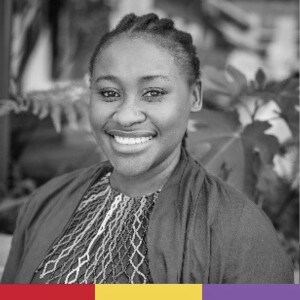
Monday Mar 03, 2025
S7 E1: Imam Muhsin Hendricks: a legacy of love, inclusion, and soft activism
Monday Mar 03, 2025
Monday Mar 03, 2025
In conversation with Thuli Mjwara
In this episode of Africa Rights Talk, we pay tribute to the life and work of Imam Muhsin Hendricks, a pioneering queer Muslim leader who dedicated his life to fostering inclusivity within faith communities. Our guest, Thuli Mjwara, reflects on his profound impact, highlighting his commitment to radical love, interfaith dialogue, and creating safe spaces for marginalized people. She explores his unique approach to activism—one rooted in softness, connection, and unwavering faith.
Thuli also discusses the ongoing work needed to honour Imam Hendricks' legacy, from advocating for inclusivity in religious spaces to ensuring activism also cultivates healing and joy. As we grapple with his tragic loss, the Queer Interfaith Collective has issued a call to action, urging those inspired by Imam Hendricks’ work to advocate for the inclusion of marginalized individuals in faith communities, foster interfaith dialogue that bridges differences rather than deepens divides and stand against hatred and violence, refusing to be silenced.
Please use the hashtags #JusticeForImamHendricks and #CompassionCentredIslam to amplify his message.
Miss Nokuthula (Thuli) Mjwara is the strategic advocacy coordinator at Inclusive and Affirming Ministries (IAM) Western Cape. With the vision of addressing religious-based homophobia, she works at the intersections of gender, religion, and human rights by facilitating processes that are community-based. Collaborating with civil society partners, she coordinates interventions that promote awareness on diversity, embodied leadership, advocacy, and eradicating conversion practices across Africa. Also, Thuli is a 2022 Outright International United Nations Religion fellow and a seasoned facilitator- accredited by the South African Qualifications Authority (SAQA). She has served on Provincial, National and Regional forums advocating for the rights of Lesbian, Gay, Bisexual, Transgender, and Intersex (LGBTI+) communities. With over 13 years’ work experience, she has worked with youth-at risk, sentenced offenders, LGBTI+ youth and their families. In relation to HIV prevention and vaccine research, she has been a member of the Groote Schuur clinical research site community advisory board (CAB) from 2018, serving as its chairperson from 2020-2022. Thuli is currently pursuing her master’s degree (MPhil) in Multidisciplinary human rights with the Centre for Human rights (University of Pretoria). She is a queer, Afro- feminist, with a passion for the realization of an equal society, where human dignity and rights are respected and affirmed across all communities.
This conversation was recorded on 27 February 2025.
Youtube: https://youtu.be/MpQFogU6lns Music and news extracts: Inner Peace by Mike Chino https://soundcloud.com/mike-chinoCreative Commons — Attribution-ShareAlike 3.0 Unported — CC BY-SA 3.0 http://creativecommons.org/licenses/b...Music promoted by Audio Libraryhttps://youtu.be/0nI6qJeqFcc Limitless https://stock.adobe.com/za/search/audio?k=452592386
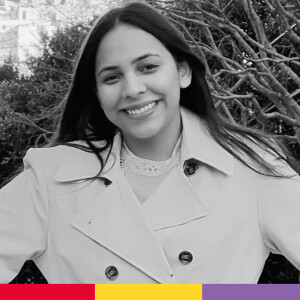
Friday Jan 10, 2025
Friday Jan 10, 2025
In conversation with Isabella Tabares
In this inspiring episode, Africa Rights Talk speaks with Isabella Tabares, founder of Footprints of Uganda, a nonprofit organisation dedicated to empowering rural Ugandan communities. Isabella shares her journey from volunteering at a young age to founding the organisation, which focuses on access to clean water, education, and sustainable community development. She recounts transformative experiences, such as organising a holiday event for 150 children and witnessing the daily struggles of families to access clean water. Isabella also discusses her mission to break cycles of poverty by providing educational opportunities, particularly for girls, and fostering long-term community empowerment.
The conversation explores the organisation's current initiatives, including their 'Building a Well' project, sponsorship programs for children, and plans for English language classes to improve educational outcomes. Isabella outlines ambitious future goals, like building a school and expanding support networks. She calls for collaboration through donations, volunteering, and raising awareness, emphasising that small acts of support can create significant change. Tune in for an uplifting discussion about resilience, impact, and the collective power to transform lives in Uganda.
Isabella Tabares is the founder and director of Footprints of Uganda, a nonprofit organisation dedicated to empowering rural Ugandan communities through access to clean water, education, and sustainable development programs. With a background in human resources and years of experience in nonprofit leadership, Isabella has cultivated a deep passion for community service and advocacy. Her time volunteering and teaching in Uganda, where she spent four months immersed in the culture and witnessing the challenges firsthand, inspired her to establish Footprints of Uganda. Isabella holds a bachelor’s degree in Global Business and Asian Studies and a master’s degree in International Business. At 30 years old, she has traveled extensively, immersing herself in diverse cultures and fostering a lifelong love of learning about people and traditions from around the world. Isabella’s leadership focuses on creating long-term, community-driven solutions that address systemic challenges like poverty, health disparities, and lack of education—especially for women and children. Through initiatives such as the ‘Building a Well’ project and the sponsorship program, Isabella and her team aim to break cycles of poverty and improve quality of life in underserved regions.
For more about her work and to support Footprints of Uganda, visit www.footprintsofuganda.org.
This conversation was recorded on 03 December 2024.
Youtube: https://youtu.be/MpQFogU6lns Music and news extracts: Inner Peace by Mike Chino https://soundcloud.com/mike-chinoCreative Commons — Attribution-ShareAlike 3.0 Unported — CC BY-SA 3.0 http://creativecommons.org/licenses/b...Music promoted by Audio Libraryhttps://youtu.be/0nI6qJeqFcc Limitless https://stock.adobe.com/za/search/audio?k=452592386

Sunday Oct 13, 2024
S6 E12: Youth engagement and participation in elections in Namibia
Sunday Oct 13, 2024
Sunday Oct 13, 2024
In conversation with Rosevitha Ndumbu, Jessica Uiras and Ompha Tshamano
In anticipation of the upcoming Namibian elections set for 27th November 2024, this episode focuses on youth participation in Namibia's political and public participation including electoral processes. The speakers, Rosevitha Ndumbu and Jessica Uiras, hosted by Ompha Tshamano discussed the topic. They identified significant barriers hindering youth engagement, notably the lack of civic education and awareness of the electoral process. The conversation challenges the idea of 'youth apathy' in Namibia and advocates for improved civic education initiatives to empower young people to actively engage in the political landscape. The conversation also highlights the structural challenges that young people face, such as high unemployment, which often hinders their political participation. There is a pressing need for political leaders and parties to strengthen their connections with young constituents to ensure that their interests are adequately represented in the decision-making process. Similarly, the speakers emphasise the role of technology and social media as crucial tools for mobilising and engaging young voters. Ultimately, this conversation highlights the need for the electoral landscape to be more adept and diverse to foster democratic participation.
Rosevitha Ndumbu is a Namibian researcher, digital rights advocate, and lawyer at the Institute of Public Policy Research. Her work involves fact-checking, research on corruption, human rights, and democracy, with a focus on law and technology, socio-economic issues, data protection, and cybersecurity. Rosevitha is affiliated with the Namibia Media Trust and is a member of the Global Shapers Windhoek Hub. She has served as Vice-President of the Internet Society Namibia Chapter and is an alumna of the African School on Internet Governance. Through her research and advocacy, Rosevitha aims to contribute to a well-informed Namibian populace and a secure digital landscape.
Jessica Uiras is a Human Rights Analyst, In-Country Researcher, and UNLEASH SDG Global Talent with a strong focus on Public Diplomacy and Rural Development. She is deeply committed to initiatives that promote democratic engagement, freedom of expression, and social justice in Namibia. Jessica currently serves as the Director of Communications at Rural Rise Namibia and is a co-founder of JAS Media cc. Additionally, she founded the Eagles Foundation, which advocates for marginalised communities, including young people with disabilities. She is also an alumna of the African School on Internet Governance.
Ompha Tshamano currently serves as a Project Officer at the Expression, Information and Digital Rights (EIDR) Unit at the Centre for Human Rights. In addition to this role, he is pursuing a Master of Laws in socio-economic rights at the University of Pretoria and holds a keen interest in fostering the empowerment of vulnerable and marginalised communities within the digital era.
This conversation was recorded on 26 August 2024.
Youtube: https://youtu.be/MpQFogU6lns Music and news extracts: Inner Peace by Mike Chino https://soundcloud.com/mike-chinoCreative Commons — Attribution-ShareAlike 3.0 Unported — CC BY-SA 3.0 http://creativecommons.org/licenses/b...Music promoted by Audio Libraryhttps://youtu.be/0nI6qJeqFcc imitless https://stock.adobe.com/za/search/audio?k=452592386
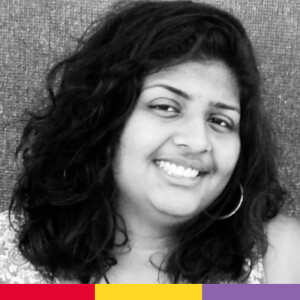
Friday Aug 30, 2024
Friday Aug 30, 2024
In conversation with Chitra Nagarajan
In this episode, Africa Rights Talk podcast sits down with Chitra Nagarajan to delve into her compelling book, The World Was in Our Hands: Voices from the Boko Haram Conflict. Chitra discusses the personal and professional journey behind the book. She shares insights into her approach to compiling the anthology, focusing on the voices of diverse individuals profoundly impacted by the Boko Haram insurgency. The conversation explores how she navigated the challenges of capturing their stories, and the themes of patriarchy, economic hardship, and climate change intertwined with the conflict. Chitra also reflects on how the book presents a different perspective from mainstream media narratives, shedding light on the ongoing repercussions of the Chibok girls' abduction and aiming to influence global understanding and response. This episode highlights the importance of human stories that underpin the broader issues of violence and advocacy in the region.
Chitra Nagarajan is an award-wining author, journalist, researcher and activist with a rich background in conflict analysis, climate change, feminism, foreign policy, migration, Nigeria and the wider Lake Chad region, race and sexual orientation, gender identity and gender expression. She has written for The Guardian, New Humanist, New Internationalist, This is Africa and Ventures Africa. With a LLM degree in Human Rights, Conflict and Justice and extensive experience working with various international and grassroots organisations, she has dedicated her career to addressing issues of conflict and displacement. Her work focuses on the impact of violence on marginalised communities, particularly women and children. She is also known for her ground breaking collection She Called Me Woman: Nigeria’s Queer Women Speak, co-edited with Azeenarh Mohammed and Rafeeat Aliyu.
This conversation was recorded on 19 August 2024.
Youtube: https://youtu.be/MpQFogU6lns Music and news extracts: Inner Peace by Mike Chino https://soundcloud.com/mike-chinoCreative Commons — Attribution-ShareAlike 3.0 Unported — CC BY-SA 3.0 http://creativecommons.org/licenses/b...Music promoted by Audio Library https://youtu.be/0nI6qJeqFcc imitless https://stock.adobe.com/za/search/audio?k=452592386
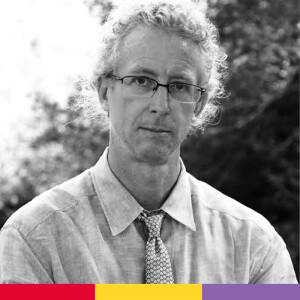
Friday Jul 05, 2024
S6 E10: The legacy of genocide in Burundi with Dr Richard Quinlan
Friday Jul 05, 2024
Friday Jul 05, 2024
In conversation with Dr Richard Quinlan
This podcast episode aimed to bring attention to the often neglected genocide that took place in Burundi, which is similar to the genocides in Rwanda and the Tigray region of Ethiopia. The genocide in Burundi, which mainly occurred in 1972 and 1993, was based on ethnic tensions between the Hutu and Tutsi communities, leading to widespread violence and large-scale killings. This historical background emphasises the significance of global awareness and systems of accountability, such as those observed in Rwanda but less emphasised in the case of Burundi.
Comparing with Rwanda, Dr Quinlan noted that Burundi's approach to transitional justice differs notably, influenced by varying political dynamics and international support. He acknowledged that justice shouldn't be a political debate but one that incite empathy at a global level. He iterated that addressing impunity in Burundi requires robust legal and institutional frameworks, ensuring justice through prosecutions and human rights protections.
Also, the discussion highlighted the role of international justice systems in ensuring accountability and supporting victims, although challenges such as jurisdictional complexities and political resistance persist. At the end, he highlighted the importance of education, and that educators and researchers play a crucial role in advocacy and raising awareness to prevent future atrocities, addressing human rights abuses across the continent.
Dr. Richard Quinlan is a Professor and Director at the Center for Holocaust and Genocide Education at St Elizabeth University, New Jersey. Dr. Quinlan is an academic and researcher in the field of international relations and conflict studies. His area of expertise lies in transitional justice, genocide, and human rights, with a specific focus on Africa. His contributions have greatly advanced the understanding of post-conflict societies and the significance of international law in promoting accountability and reconciliation. Additionally, he is a human rights advocate and has been actively involved in various educational and advocacy initiatives, although his involvement in Rwanda is more pronounced than in Burundi. His doctoral thesis is titled: Transitional Justice and Post-Conflict Reconstruction: International Law Perspectives.
This conversation was recorded on 23 June 2024.
Youtube: https://youtu.be/MpQFogU6lns Music and news extracts: Inner Peace by Mike Chino https://soundcloud.com/mike-chinoCreative Commons — Attribution-ShareAlike 3.0 Unported — CC BY-SA 3.0 http://creativecommons.org/licenses/b...Music promoted by Audio Library https://youtu.be/0nI6qJeqFcc imitless https://stock.adobe.com/za/search/audio?k=452592386
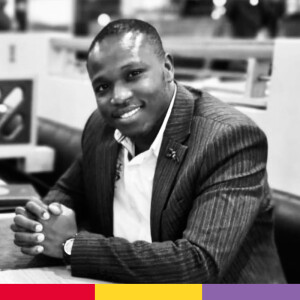
Monday Jun 17, 2024
S6 E9: Navigating democracy: insights from the 2024 South African elections
Monday Jun 17, 2024
Monday Jun 17, 2024
In conversation with Tendai Mbanje
In this episode, we delve into the pivotal 2024 South African elections, exploring significant shifts in political representation and the ANC’s historic loss of its majority.
Mr Mbanje explores the seismic changes witnessed during the 2024 elections, including shifts in party dynamics, emerging voices, and the impact on parliamentary composition. He notes ANC’s unprecedented loss as the highlight of this election. The ANC, a dominant force for three decades, faced a surprising defeat in which he analyses the factors contributing to this shift and reflects on the party’s trajectory.
Furthermore, he commends the Electoral Commission for its effectiveness in carrying out its duties and notes that it only faced logistical challenges during this election which differed from the numerous logistical hurdles, technology adoption, and ensuring voter participation issues usually encountered in previous elections. He finally weighed in on the implications of the election results for democratic institutions, accountability, and citizen trust, nationally, regionally and globally.
Mr. Tendai Shepherd Mbanje is an accomplished scholar and advocate, and currently a Project Officer, at the Expression, Information and Digital Rights Unit (EIDR), Centre for Human Rights, University of Pretoria. He has made significant contributions to African governance and electoral processes. His research focuses on the critical role of Regional Economic Communities (RECs) within the African Union. Mr. Mbanje’s work sheds light on credible and legitimate electoral practices, emphasising transparency, accountability, and youth engagement. His insights resonate beyond South Africa, influencing democratic norms and practices in neighbouring African nations, and exploring strategies to combat disinformation and ensure credible electoral outcomes.
This conversation was recorded on 07 June 2024.
Youtube: https://youtu.be/MpQFogU6lns Music and news extracts: Inner Peace by Mike Chino https://soundcloud.com/mike-chinoCreative Commons — Attribution-ShareAlike 3.0 Unported — CC BY-SA 3.0 http://creativecommons.org/licenses/b...Music promoted by Audio Library https://youtu.be/0nI6qJeqFcc imitless https://stock.adobe.com/za/search/audio?k=452592386
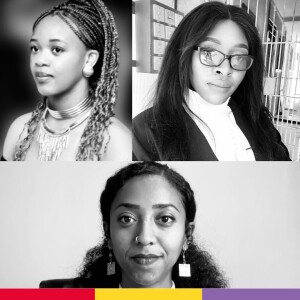
Monday Jun 03, 2024
Monday Jun 03, 2024
In conversation with Zanele Fengu, Mosupatsila Nare and Samrawit Getaneh
The episode was hosted by Samrawit Getaneh (HRDA class of 2016, Ethiopia), who welcomed and engaged in a conversation with Zanele Fengu and Mosupatsila Nare (HRDA class of 2022, South Africa and Zimbabwe, respectively). The speakers highlighted that millions of Africans are displaced each year due to climate change related factors and the figures are growing by the millions each year, making the situation grave. Displacements are occurring owing to disasters including floods, droughts, windstorms and wildfires raging across the continent. Additionally, displacements are also occurring due to climate action that aims to conserve carbon sinks without using a rights based approach, thereby displacing indigenous communities from their lands. Various regional legal instruments and policy documents are key in tackling climate displacement and the various challenges that arise with it, one instrument among many is the the Kampala Convention, the first ever legally binding instrument in the protection and assistance of IDPs in Africa. On the other hand, a particularly worrying reality is the potentially devastating effects of a deficient legal system which fails to adequately address the impact of climate change; particularly the lack of consensus on the legal position of climate refugees which leaves this demographic at risk of an array of human rights violations. Hence the need to effectively implement existing laws such as the Kampala convention, but also the imperative to extend protection to climate refugees, was highlighted in the discussion. The speakers concluded by noting the interrelatedness of various challenges posed by the climate crisis and the need for an “all hands on deck” approach in using human rights law to tackle the problems of climate displaced persons.
This conversation was recorded on 16 May 2024.
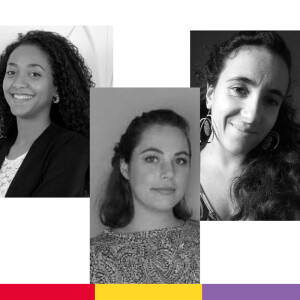
Wednesday Apr 17, 2024
S6 E7: Children's Rights and Climate Change in Africa
Wednesday Apr 17, 2024
Wednesday Apr 17, 2024
In conversation with Elsabe Boshoff, Samrawit Getaneh and Nastasia Thebaud-Bouillon-Njenga
This is a podcast series brought to you by the HRDA Alumni Task Force on Climate Justice and Rights of Future Generations in Africa, hosted under the Africa Rights Talk – Centre for Human Rights podcast. The initial aim is to produce a limited series of six podcasts that form a coherent whole, introducing some of the main challenges related to climate change and human rights in Africa. We take this opportunity to acknowledge the financial support of the European Union through the Global Campus for Human Rights.
In this podcast episode, the two speakers, Elsabe Boshoff and Samrawit Getaneh, discuss how climate change disproportionately affects children in Africa and the interlinkages between multiple systematic inequalities affecting girls and boys in their diversity. They touch on the responsibilities of African states as duty bearers to ensure children’s rights in the context of a climate changing .
Samrawit elaborates on the negative impacts of climate change due to their physical and cognitive levels of development. She highlights how children bear the brunt of the impact of anthropogenic GHC emissions. Samrawit further stresses that girls are particularly impacted by the effects of climate change, given the gender norms that affect their roles, such as helping with household chores.
Elsabe reflects on the urgency to tackle climate-related challenges in Africa based on the United Nations Children’s Fund (UNICEF) that has projected that around 125 million children could be subjected to the consequences of climate change by 2030, through displacement, water scarcity and malnutrition, which all impact on the health of the child. In addition, Elsabe points out the impacts of heatwaves on pregnant women and their fetuses, which include delayed brain development in unborn children, resulting in educational attainment and work outcomes later in life.
Finally, both speakers zoom in on some recommendations such as children empowerment and more engagement from state members. Children can be empowered to share their views on climate-related issues that directly affect them. These are through child parliaments where children get the opportunity to debate on important issues on the national agenda. It is also important that African state parties engage more with the Working Group on Children’s Rights and Climate Change under the African Committee of Experts on the Rights and Welfare of the Child (African Committee).
In this podcast episode, the two speakers, Elsabe Boshoff and Samrawit Getaneh, discuss on how climate change disproportionately affects children in Africa, and the interlinkages between multiple systematic inequalities affecting girls and boys in their diversity. They also touch on the responsibilities of African states as duty bearers with regard to ensuring the whole range of children’s human rights in the context of a changing climate.
Samrawit elaborates on the negative impacts of climate change due to their physical and cognitive levels of development. She highlights how children bear the brunt of the impact of anthropogenic GHC emissions. Samrawit further stresses that girls are particularly impacted by the effects of climate change, given the gender norms that affect their roles, such as helping with household chores.
Elsabe reflects on the urgency to tackle climate-related challenges in Africa based on the United Nations Children’s Fund (UNICEF) that has projected that around 125 million children could be subjected to the consequences of climate change by 2030, through displacement, waterscarcity and malnutrition, which all impact on the health of the child. In addition, Elsabe points out the impacts of heatwaves on pregnant women and their fetuses, which include delayed brain development in unborn children, resulting in educational attainment and work outcomes later in life.
Finally, both speakers zoom in on some recommendations such as children empowerment and more engagement from state members. Children can be empowered to share their views on climate-related issues that directly affect them. These are through child parliaments where children get the opportunity to debate on important issues on the national agenda. It is also important that African state parties engage more with the Working Group on Children’s Rights and Climate Change under the African Committee of Experts on the Rights and Welfare of the Child (African Committee).
Elsabe Boshoff (HRDA Class of 2017, South Africa) is a Doctoral Fellow at the Norwegian Centre for Human Rights (NCHR). Her PhD research focuses on the right to development in the African human rights system, particularly in the context of the extractive industries. Prior to joining the NCHR, Elsabe has worked with the African Commission on Human and Peoples’ Rights between 2017 to 2020.
Samrawit Getaneh (HRDA Class of 2016, Ethiopia) is a Senior Child Rights Protection Officer at the African Committee. She is particularly interested in mechanisms of human rights protection, the protection of the rights of vulnerable groups and minority groups, the nexus between human rights and development as well as climate change and human rights. She is also a current PhD researcher at the University of the Western Cape.
Nastasia Thebaud-Bouillon-Njenga (HRDA Class of 2015, France/Kenya) is a human rights attorney and a consultant in climate justice, gender equality, the right to food and children’s rights. She is the founder of Ujasiri Human Rights consultancy, an NGO providing advocacy, training and research consultancy services to civil society actors.
This conversation was recorded on 22 March 2024.
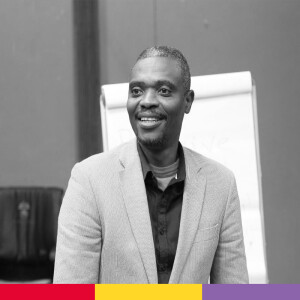
Wednesday Apr 10, 2024
S6 E6: #GreenJusticeAfricaCampaigns: An introduction to Climate Justice in Africa
Wednesday Apr 10, 2024
Wednesday Apr 10, 2024
In conversation with Prof Ademola Jegede and Davina Murden
This is a podcast series brought to you by the HRDA Alumni Task Force on Climate Justice and Rights of Future Generations in Africa, hosted under the Africa Rights Talk – Centre for Human Rights podcast. The initial aim is to produce a limited series of six podcasts that form a coherent whole, introducing some of the main challenges related to climate change and
human rights in Africa.
In this first episode of the HRDA Alumni Task Force on Climate Justice and Rights of Future Generations in Africa podcast, Davina Murden (HRDA Class of 2021, Mauritius) welcomed Prof Ademola Jegede (HRDA Class of 2008, Nigeria) who engaged on an exploratory discussion on the concept of climate justice in the African context. While we agree that there is no universal definition of climate justice, Prof Jegede reflected on how climate justice must be dealt with under a different light in the African context, especially among marginalised communities who are the most vulnerable ones. When asked by the host whether Africa is the continent where the term ‘climate justice’ was first used, Prof Jegede replied in the negative. However, he affirmed that Africa is the continent that experiences considerable injustices with regards to climate change due to human actions and inactions. This also raises the question of fairness and equity according to Prof Jegede.
In addition, Prof Jegede reflected on the changes that non-governmental organisations working on climate justice face. These are, for example, lack of resources and capacities to engage with climate-related challenges. He also added how African leaders are sometimes reluctant to take actions on ‘climate violence’.
Another important point on which Prof Jegede engaged was the lack of education in Africa when it comes to climate justice. While he commended African universities for including climate justice in some academic programmes, Prof Jegede also noted that many Africans still do not know what climate justice is, which makes it difficult to raise awareness on the issue in Africa. In his concluding remarks, Prof Jegede stressed on the importance of educating everyone on climate justice by adopting a bottom-up approach at both an individual and community level.
Ademola Jegede is a Professor of Law in the School of Law, University of Venda, South Africa. He is also the Interim Director at the Ismail Mahomed Centre for Human and People’ Rights at the University of Venda. He has widely published on the interface of climate change on rights of vulnerable populations. In 2023, the African Committee on the Rights and Welfare of the Child (ACERWC) appointed Professor Jegede to serve as an external expert to its Working Group on Children and Climate Change.
The Centre for Human Rights is the regional headquarters of the Global Campus Africa, which comprises 13 partner universities across Africa and forms part of the broader Global Campus of Human Rights, which is a network of over 100 universities in eight regions with the vision and mission ‘to foster new generations of human rights defenders contributing to a world in which human dignity, equality, freedom, security, sustainable development, democracy and the rule of law are realised.’ We acknowledge the financial support from the European Union through the Global Campus for Human Rights.
This conversation was recorded on 20 March 2024.

